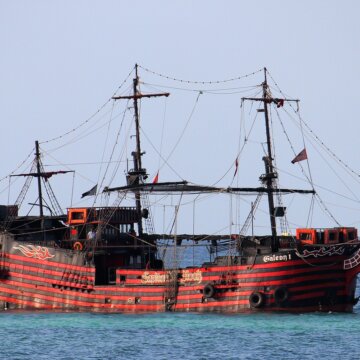- About
- Topics
- Picks
- Audio
- Story
- In-Depth
- Opinion
- News
- Donate
- Signup for our newsletterOur Editors' Best Picks.Send
Read, Debate: Engage.
| topic: | Transparency and Corruption |
|---|---|
| located: | Nigeria, Venezuela |
| editor: | Bob Koigi |
In recent years, the world has experienced a lull in maritime piracy that once gripped the Indian Ocean waters costing the global economy an estimated $18 billion annually in payment of ransoms, higher insurance premiums, increased fuel bills with ships changing trading routes and payment of security bills for protection of shippers. International efforts that included heightened surveillance in the Gulf of Aden off the coast of East Africa and information sharing among countries contributed to the crashing of the notorious Somali pirates.
But that appears to have been short lived going by recent developments. While there haven’t been any recent successful pirate cases in the wider Gulf of Aden, there has been a worrying upsurge in other regions including West Africa, Asia and Latin America that has authorities now on alert.
Early this year, San Ramon a tanker anchored off Eastern Venezuela was attacked by armed men who killed the captain and led to the loss of a crew member who was on board. In April authorities reported attacks on four vessels resulting in theft of merchandise and injured crew members.
Last December pirates attacked a ship off the coast of Nigeria kidnapping 19 crew members. The same month another ship was hijacked off the Benin coast with 20 crew members held hostage.
Such cases have been attributed to the new wave of sophisticated piracy that has increased by 24 per cent in 2020 compared to 2019 according to reports. The Gulf of Guinea in West Africa, an area that extends from Senegal to Angola, has become the latest hotspot with nine out of 10 global piracies and kidnappings for ransom being reported in the region.
Researchers argue that the same factors that drove Somali pirates to their trade could be inspiring the current wave, from weak governments, disenfranchised youth, economic hardships and lack of jobs.
The situation could further be exacerbated by the COVID-19 pandemic. With governments stretched thin and resources now focused on tackling the virus, security and surveillance could be relaxed making ships soft targets. The virus has also taken a toll on economies and devastated livelihoods as a result of mounting job losses. Desperation could drive the growing list of frustrated young people into looking for alternative sources of income with illegal sea activities an option.
Which is why the international collaboration, investment in technology, surveillance and removal of bureaucracies that hamper coordination of anti-piracy interventions among countries must be prioritised now more than ever to prevent the new piracy surge escalating into a full blown global catastrophe.
Image by Pixource
